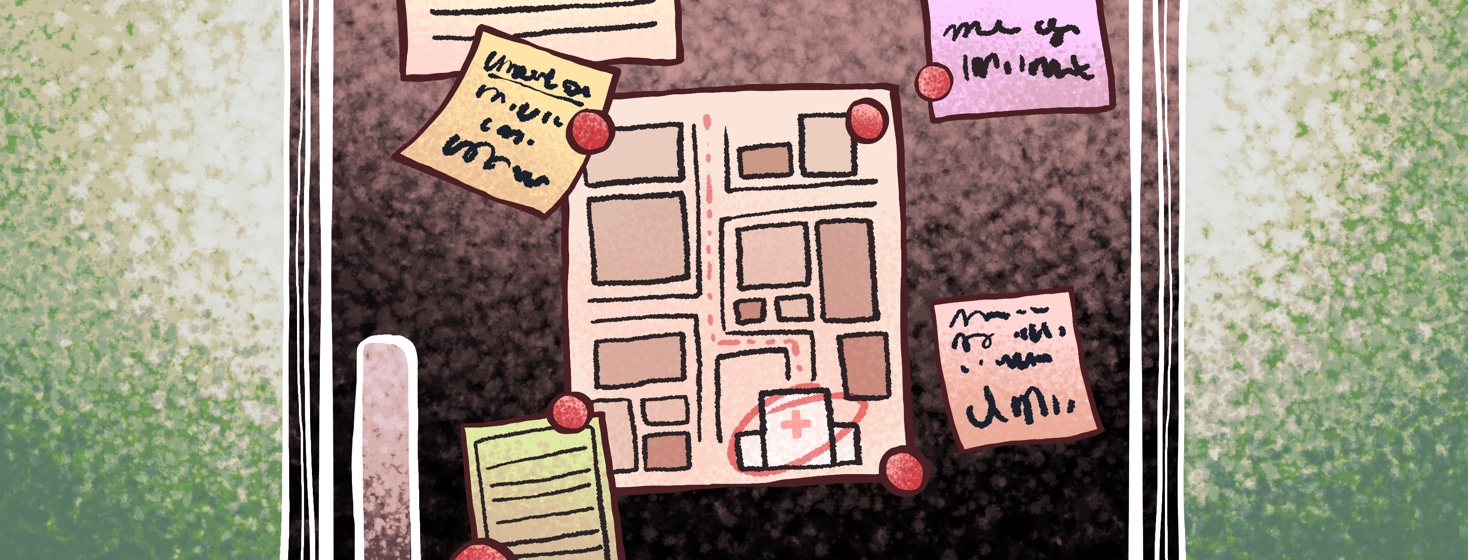Be Prepared for Medical Emergencies!
If we are old enough to have prostate cancer, we usually also have other underlying health conditions. And on Friday, 4/17/20, I woke up with the worst case of vertigo I’ve ever had. I was light-headed and had fairly intense nausea that only intensified until I threw up my undigested breakfast 5 hours later.
I then laid down again in bed after that, and a chest pain started on my left side. And then the scare of scares for me -- the pain went to my left arm also. Something was wrong, and I was sure it was my heart.
Quickly deciding to go to the ER
I called the VA triage nurses, and I was told to go to the emergency room (ER) ASAP. Patti and I had no second thoughts about going, and off we went.
Although there weren’t any other people in the ER admitting room, Patti had made masks for each of us. I wore mine as I went in. (And when she came in after parking the car, she was told in no uncertain terms to get out NOW! No non-patients were allowed in the hospital.)
They took me to the ER, where they hooked me up to everything possible. And the shock of shocks, my heart rate was running between 33 and 37. (At age 60 and above (I’m almost 76), our resting heart rate shouldn’t be under 60.) Ultimately I went to the PCCU (Progressive Cardiac Care Unit), with a stress test scheduled for the next morning.
People are opting not to seek medical assistance
On Sunday, with only one test, I had a lot of time to look into my prospects. One of the surprises was an article from the Washington Post about hospital visits rates following heart attacks, strokes and appendicitis. My purpose for writing about this is not to outline the article, but to get my fellow PCa survivors to read it so they can be prepared to make a decision about going to a hospital if needed.
The article discusses how people with severe heart conplications, who would normally admit themselves to urgent care following a heart attack, are choosing not to go to the hospital. One reason behind this change in behavior is perhaps linked to COVID-19. Researchers are finding that people are opting not to visit hospitals when experiencing a medical emergency, such as "inflamed appendixes, infected gall bladders, bowel obstructions, and more ominously, chest pains and stroke symptoms" to name a few.1
Be prepared for any type of medical emergency
Please think about how you will react to a medical emergency now rather than when you’re in a dire situation. Modern medicine has come a long way since we were born. Take advantage of it.
And in my case, it turned out a medication I was put on when I had my first aortic valve replacement 14 years ago. I’m now off that medicine and back at a resting heart rate of 60, I think there will be some other benefits to me by going off that medicine. At no time did I feel threatened with possible COVID-19 contamination in the hospital. I’m sure glad I went to the ER!
Stay aware of possible risk factos
I finished this article just before lunch and decided to grab lunch before doing a final proofread. And lo and behold, there was a news release from CBS News that a study has shown that high blood pressure, obesity, and diabetes are risk factors for COVID-19. Please be extra diligent if you have one or more of those conditions!2

Join the conversation